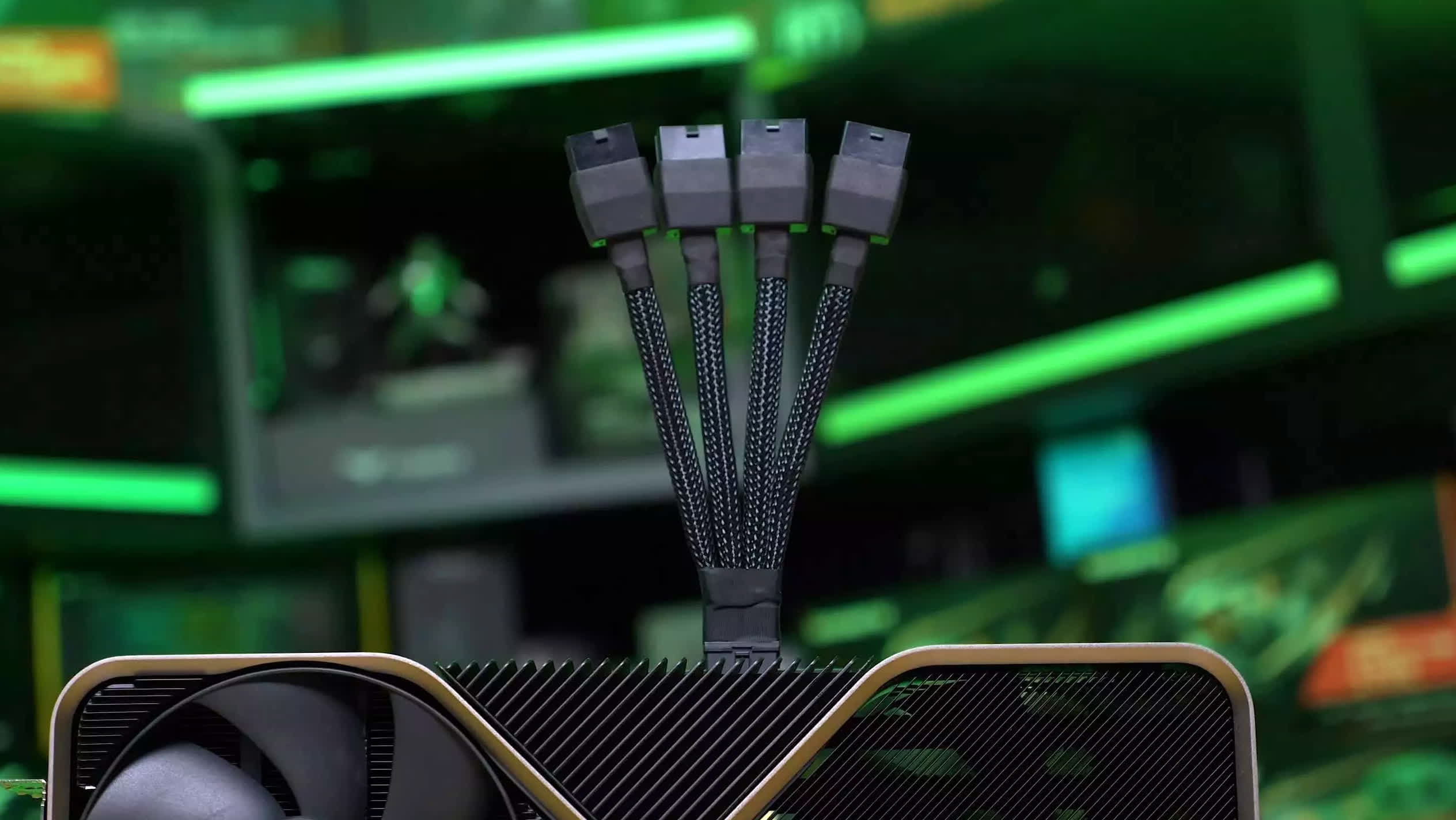A hot potato: Various entities are passing around the blame for the melting power cable connectors on Nvidia's new GeForce RTX 4000 series graphics cards. The consortium managing PCI specifications is the latest to deny any problems with its end of the production process, reminding manufacturers to take proper precautions.
The Peripheral Component Interconnect Special Interest Group (PCI-SIG) delivered an official response to the press this week concerning the melting power cables for Nvidia's latest GPUs. The group's boilerplate safety reminder suggests it thinks the problem lies not with it or the end users but with manufacturers.
The PCI-SIG publishes and manages specifications for many aspects of PCs, including the 12HPWR power cables at the center of the recent controversy. It said its specifications include all necessary technical information on interoperability and that the rest is up to manufacturers basing products on those specs - just Nvidia in this case. The PCI-SIG suggested Nvidia is responsible for properly designing, manufacturing, and testing products like GPU power cable connectors.

Since late October, users have complained about melting power connections on Nvidia's RTX 4090 graphics card. They quickly blamed the adapters the company included to make the 16-pin 12VHPWR cables compatible with older ATX 2.0 power supplies. The cables only natively support the newer but less common ATX 3.0 PSUs.
One customer filed a class-action lawsuit against Nvidia, calling its adapters dangerous and defective. However, separate investigations from Nvidia and Gamers Nexus indicate that only a tiny percentage of users encountered the issue and that it stems from improperly connected cables. The PCI-SIG said it's aware of the lawsuit but only directed its safety advisory toward manufacturers, not customers.
The adapters appear safe for most users who follow directions, although Igor's Lab thinks they might be a bit delicate. If you're unsure about the included power connector adaptors for your RTX 4090 or 4080, you could shop for third-party adapters or switch to an ATX 3.0 PSU to remove the need for adaptors. Upgrading the power supply would only add a couple of hundred dollars to the price of either GPU, both of which exceed $1,000.
The whole mess has given AMD more ammunition in its competition against Nvidia. AMD's upcoming Radeon RX 7900 XTX and 7900 XT GPUs are cheaper than their RTX 4000 equivalents and don't require adapters for ATX 2.0 PSUs. The company didn't hesitate to highlight both advantages.
